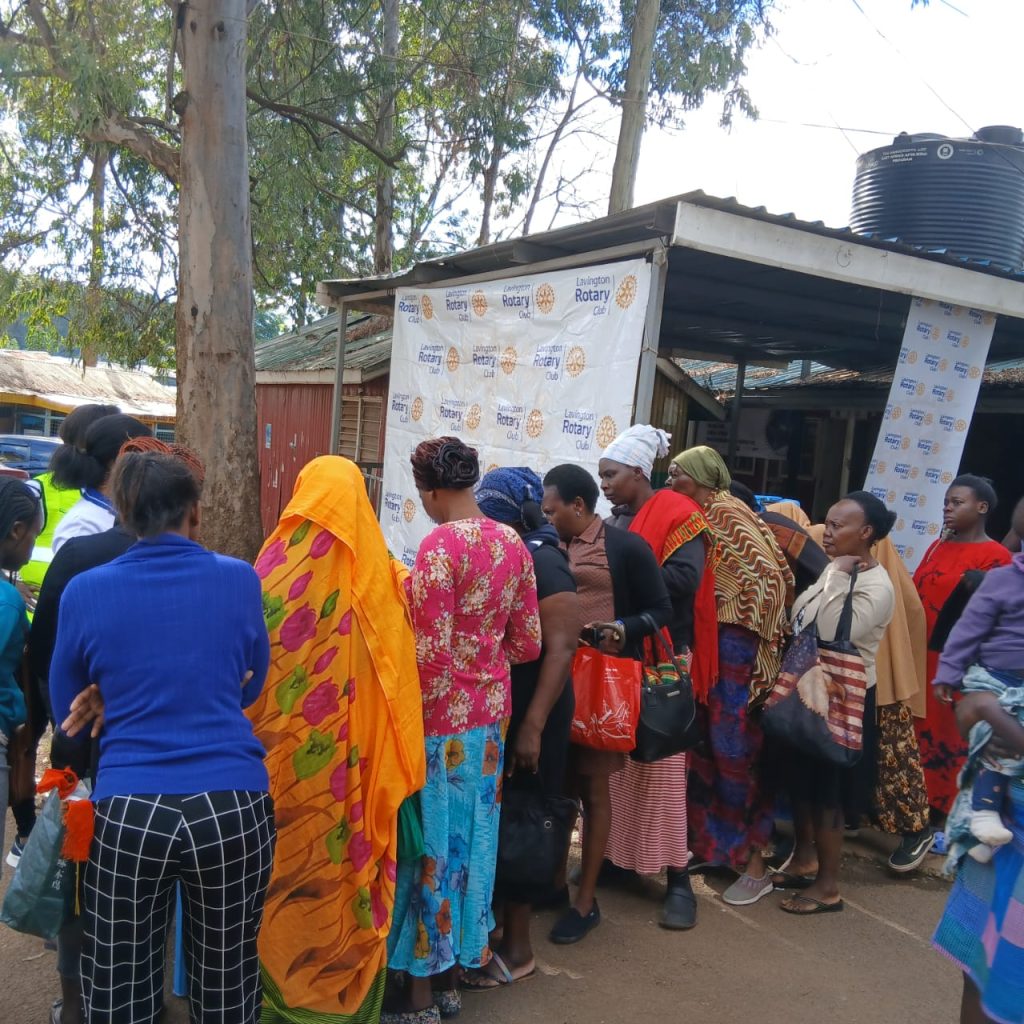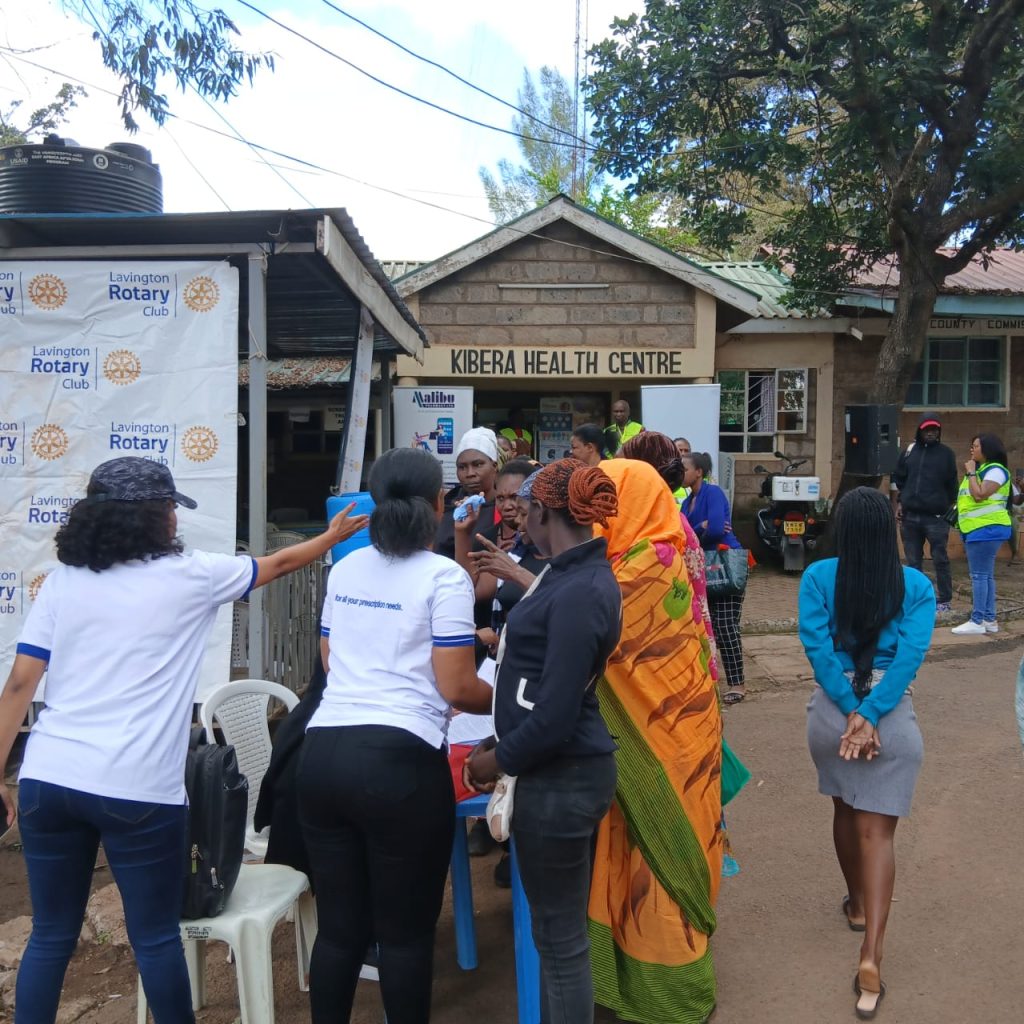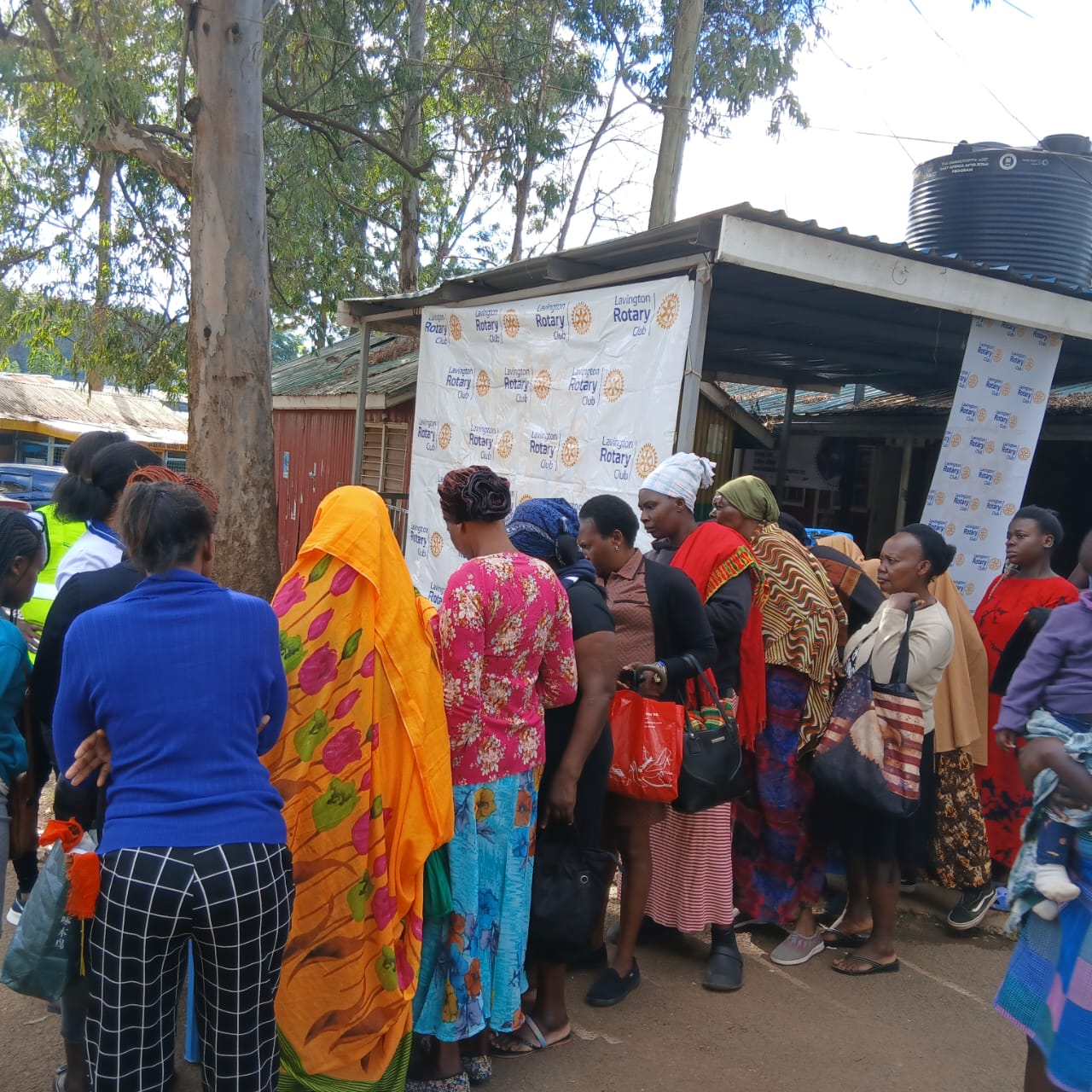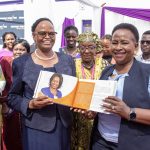The line began forming before dawn, a quiet procession of women wrapped in colorful kangas against the morning chill. By sunrise, hundreds had gathered outside the Kibera D.O Health Centre, their patient anticipation belying the urgency of their needs. This was no ordinary day – it was a rare chance for these women, sime of whom had never seen a gynecologist, to receive life-changing medical care, free of charge.
The brainchild of DeckerMed Africa Trust and the Lavington Rotary Club, Nairobi, the medical camp represented something radical in a community where women’s health concerns are often pushed aside by more immediate struggles for survival. “We’re not just treating diseases today,” explained Esther Baraga, DeckerMed’s Director of Development, watching as nurses set up examination stations. “We’re challenging the idea that women in informal settlements should accept poor health as their fate.”
The statistics tell a grim story: in Kenya’s urban informal settlements, cervical cancer mortality rates are nearly double the national average, while conditions like obstetric fistula and pelvic organ prolapse – easily treatable with proper care – condemn countless women to lives of pain and isolation. The camp’s organizers designed every aspect to address these silent epidemics, from the cancer screening stations to the discreetly placed counseling areas where women could discuss sensitive issues without fear of stigma.

At the Betty Lloyd Memorial Clinic section, named for a beloved cancer advocate, 28-year-old single mother Winfred Achieng’ sat nervously waiting for her first-ever cervical cancer screening. “I’ve been putting this off for years,” she confessed, fingers knotting in her lap. “The government hospitals are always crowded, and private clinics…” Her voice trailed off, the financial reality left unspoken. Nearby, 65-year-old grandmother Mary Atieno marveled at the blood pressure cuff on her arm – her first check-up in a decade.
The logistics behind the scenes were staggering. Pharmacists from Malibu Pharmacy Ltd worked in assembly-line precision to fill prescriptions, while optometrists from Essilor Luxottica tested eyesight and distributed reading glasses. In the counseling corner, representatives from the Africa Cancer Foundation guided women through breast self-exam techniques using silicone models. Even the Mr. and Miss World Kenya titleholders rolled up their sleeves, directing traffic and comforting crying babies while mothers underwent examinations.
For Linet Were, the Nursing Officer in charge of the health center, the day held particular significance. “We see these cases every day – women suffering needlessly from conditions we could easily manage if caught early,” she said, pausing to comfort a teenager diagnosed with severe anemia. “What’s happening today should be the norm, not the exception.”

As the sun dipped below Kibera’s tin roofs, the medical team tallied their achievements:240 women screened, 87 cancer referrals made, 216 cases of hypertension identified, and countless lives touched. But perhaps the most powerful moment came unexpectedly, when a group of elderly women – all fistula patients who had received treatment – spontaneously broke into song, their voices rising in a Swahili hymn of gratitude.
“This is why we do it,” whispered Wambui Karanja of Lavington Rotary Club, her eyes glistening. “Not just for the numbers, but for the moments when women realize they matter.” With plans already underway for follow-up care and future camps, that message of dignity and hope promises to echo far beyond Kibera’s borders.
For the women who came – some walking for hours, others borrowing bus fare from neighbors – the camp offered more than medical care. It offered proof that their health, their pain, and their futures were worth fighting for. And as the last patients departed, clutching medications and referral slips, a new question hung in the air: When would the rest of Kenya start treating women’s health as the priority it truly is?










